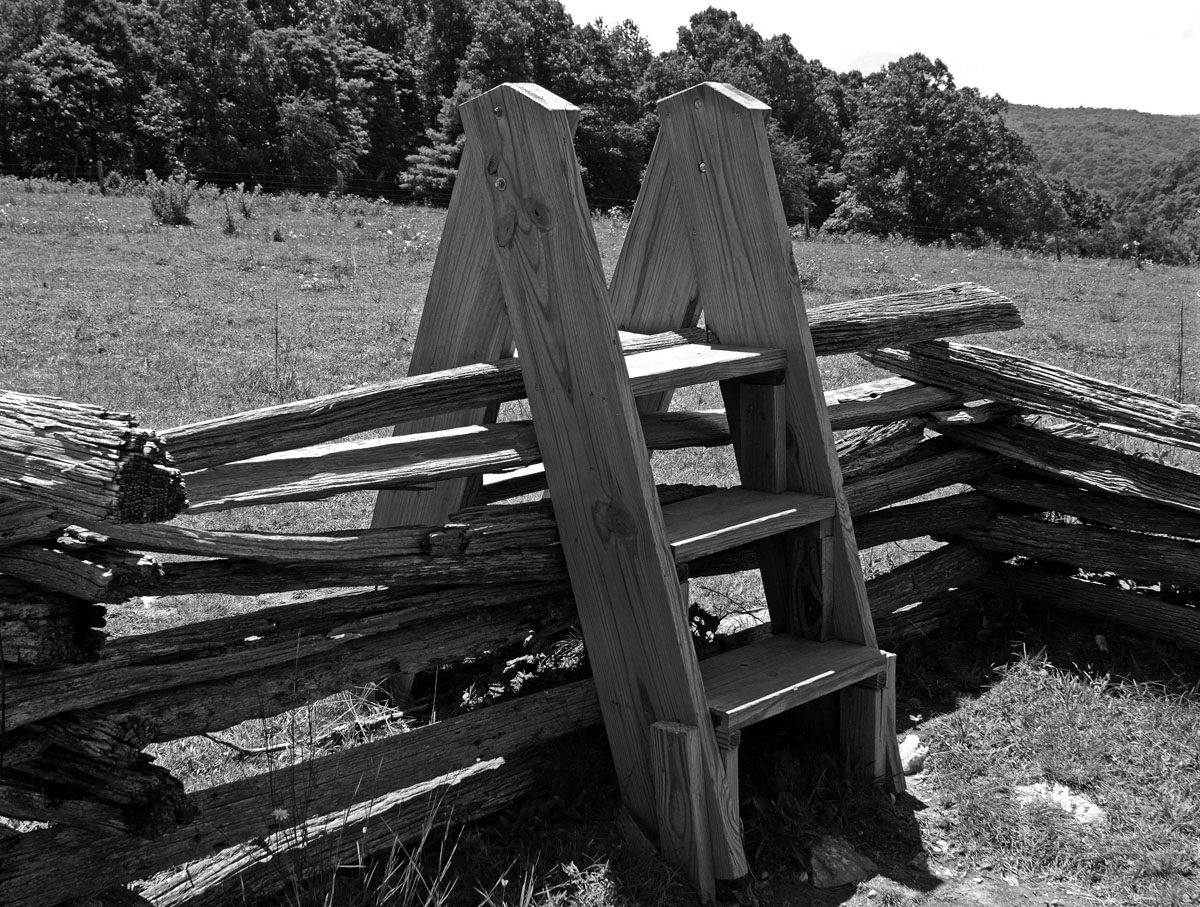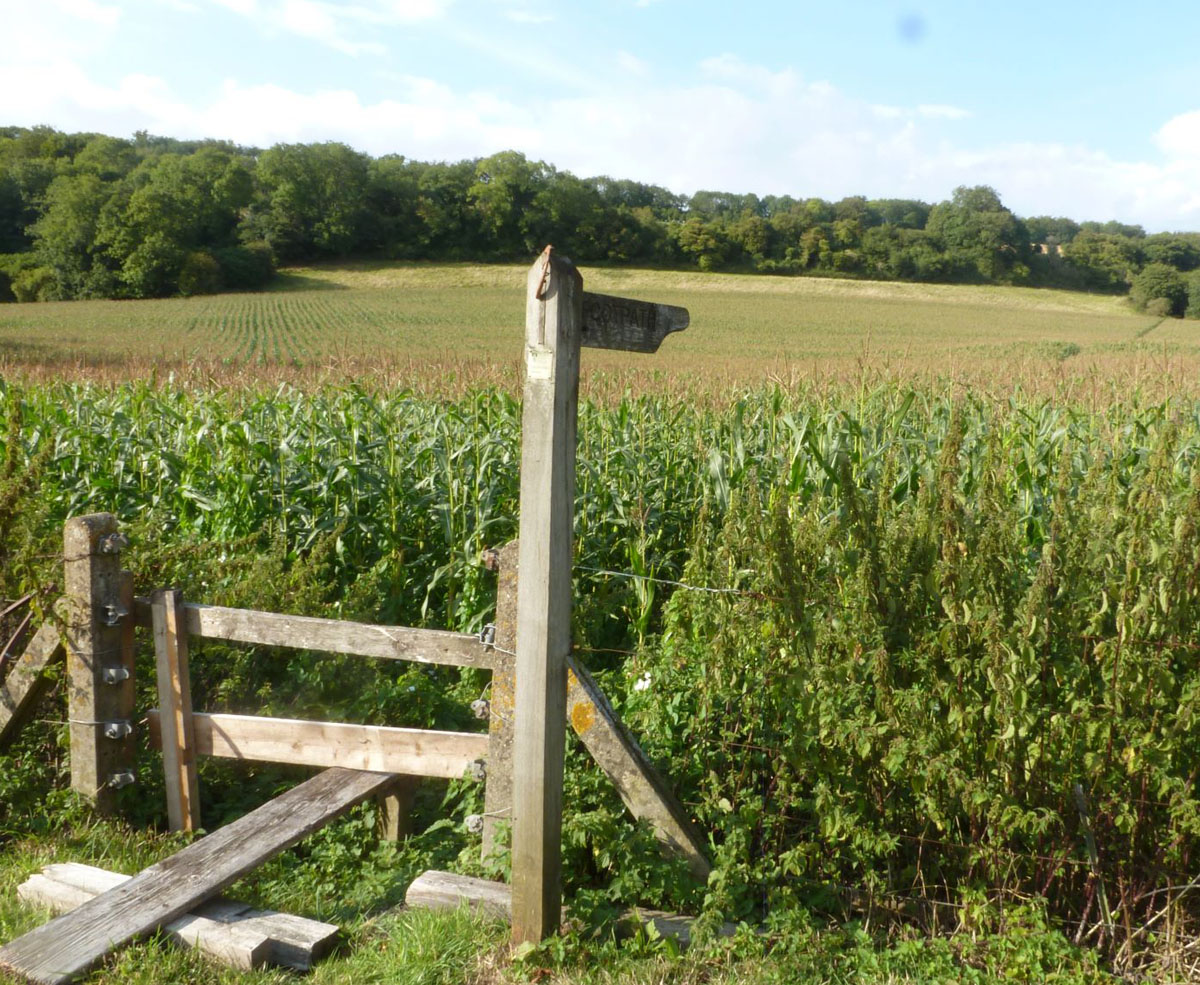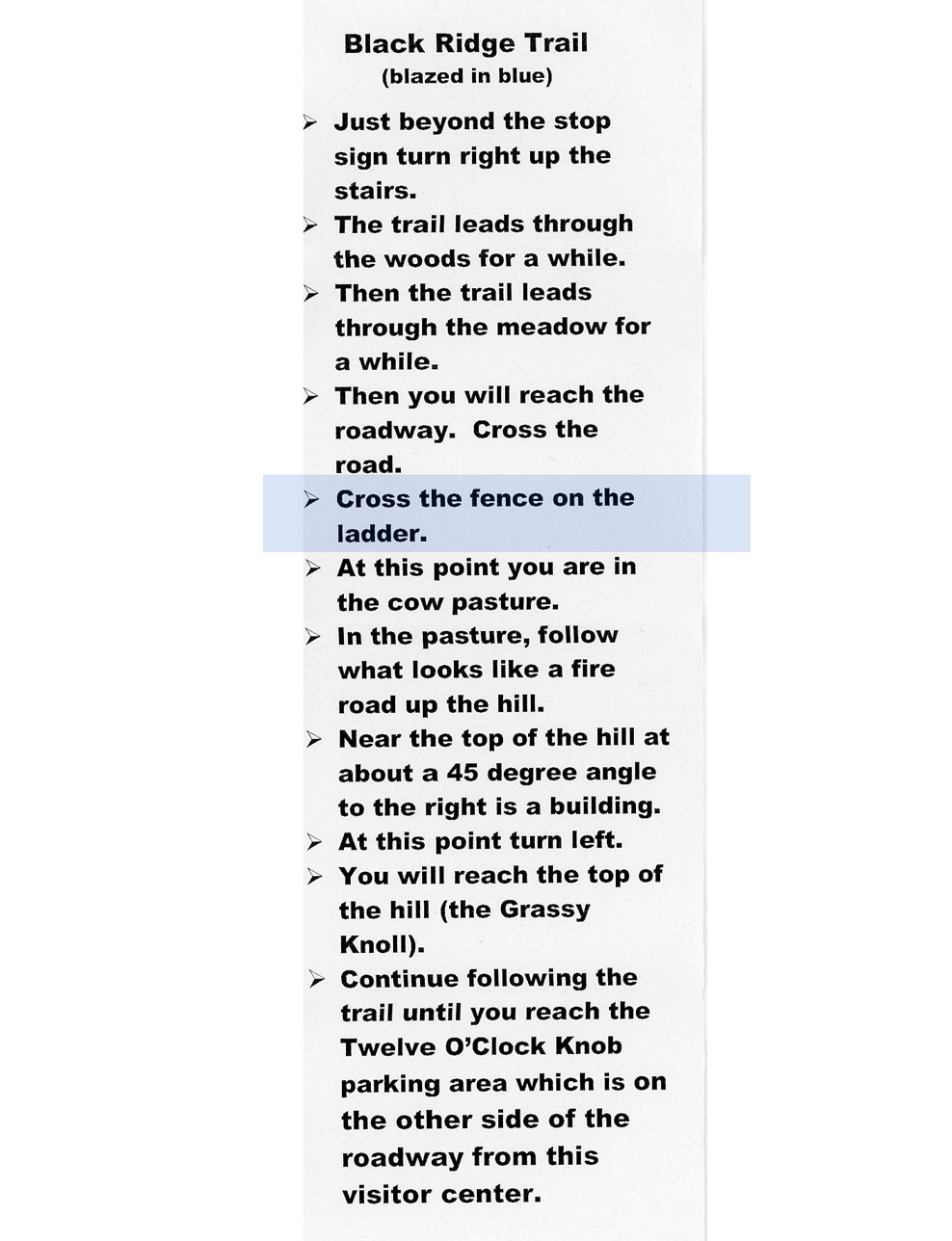My guess would be that there are very few stiles remaining in America, though I also would guess that there were never that many in the first place, except possibly in New England. Most Americans probably don’t even know the word. Even I, born and raised a country person with roots in the Appalachian Highlands, know the word only from English literature.
I encountered this stile yesterday on one of the hiking trails at Rocky Knob, which is one of the camping areas along the Blue Ridge Parkway. It’s near Floyd, Virginia. The guide sheet for the Black Ridge trail calls it a “ladder.” Had the guide sheet used the word “stile,” few would have understood the instructions for getting across the fence (though the use of a stile is pretty obvious once you see it).
The near-loss of the word says a lot about our cultural loss. I’m guessing that city people these days walk far more than country people do. Cities have walking infrastructure; rural places have lost it. In my day, I’ve gone over and under my share of fences. But yesterday was the first time I’ve ever encountered a stile outside of a novel. Needless to say, I was delighted. There actually are two stiles — one leading into the pasture, and the other leading out.
The Black Ridge trail at Rocky Knob, by the way, is a remarkable little trail. It’s only 3.5 miles, but it has some of everything — deep woodland beside a small stream, a wee ford where you might find stepping stones if you’re lucky, highland meadows, cows, old farm roads worn deep by erosion and by the wagon traffic of many years ago, and the crossing of a ridge with views to both north and south. It’s all very Shire-like and picture perfect. I could imagine running into Frodo (out gathering mushrooms) or even Gandalf (surveilling the trouble afoot caused by Saruman’s agents inciting Trump supporters by telling them lies) at any moment. We’d have plenty of work for Gandalf in these parts these days.
Speaking of words, the Park Service employee who gave me the guide sheet and pointed to the trailhead said, “If you come across any cows, they’re innocuous.” That pleased me greatly, though it might have frightened those with poorer vocabularies. Probably as few Americans are familiar with the word “innocuous” as with the word “stile.”
Scratch a Park Service employee, bless them, and you just might find a lover of literature.
The word “innocuous,” by the way, comes from the Latin word innŏcŭus, which means “un-noxious,” or “harmless.” French cognates include noceur and nocif. But I suspect that the word “innocuous” came to us directly from Latin, since the words sound just the same. Related English words include “innocent,” and, of course, “noxious.”
While we’re at it, “stile” derives from the Old English word stigel, which is related to the word “stair.”
Readers in Britain: If you have nearby stiles, please send photos!
⬇︎ Update 1: A reader in the South Downs of England has sent these two photos of stiles, which she says are common in that part of England. I can’t say that I have ever seen anything like it. I think I’d call them plank stiles. Thanks for the photos!
Update 2: This Mother Goose rhyme has been running through my head all day:
There was a crooked man, who walked a crooked mile.
He found a crooked sixpence upon a crooked stile.
He bought a crooked cat, which caught a crooked mouse,
And they all lived together in a little crooked house.





You jarred a childhood memory with your picture of the stile. A fall nature walk in the third grade took us on a path to our town’s pond which provided our city drinking water. The path led to a stile which once crossed found us in a cattle pasture. We had to cross another stile to continue on our walk. One of the kids said, “watch out for the bull.” Every fall when the leaves are down there is a familiar scent that always reminds me of our teacher showing us a sycamore leaf and our hike to the pond. I have returned, on more than one occasion, to my hometown and the path we followed is obliterated and there is no sign of the stiles. So inconsequential to be so firmly planted in my memory.
Tom: Wow…
Ha ha ha – surveilling the trouble afoot caused by Saruman’s agents inciting Trump supporters by telling them lies
Ha ha ha – surveilling the trouble afoot caused by Saruman’s agents inciting Trump supporters by telling them lies
Thank you for the history lesson, again
Henry: It’s remarkably the same, isn’t it? We almost need to read Tolkien all over again for his prescience.
It is a very poignant observation that city people walk more than country people these days. I live in rural Arkansas where I regularly ride my bicycle through the countryside. I rarely observe anyone afoot. To walk the smallest distance is almost unthinkable. Even the most casual chore such as getting the mail requires an ATV, parents wait for their children to arrive home on the bus from school, waiting in a car or quad. They dare not place the strain of 5 minutes of walking in the elements on their children. A neighbor has a house on only 5 acres but uses an ATV or tractor to check his fences. We always converse across the fence—me on foot, while he reclines in the seat of a motorized vehicle.
I’ve acquired many a long scratch atop my buttocks from slithering under barbed wire fences. There are no stiles in my neck of the woods either but I have long desired them to cross onto neighboring land. I didn’t know what they were called until today. Thanks.
Michael: I don’t think you’ve commented here before. Welcome! We are a movement, you know. I don’t know how long you’ve been following this blog, but a book that I think you will want to read is “This Land Is Our Land: How We Lost the Right to Roam and How to Take It Back,” by Ken Ilgunas. It happens that the book is dedicated to me and to Ken’s other best friend. Here is the Amazon link: https://www.amazon.com/This-Land-Our-Lost-Right/dp/073521784X/
Maybe you could build some stiles! I can think of few better small projects to make the world a better place.